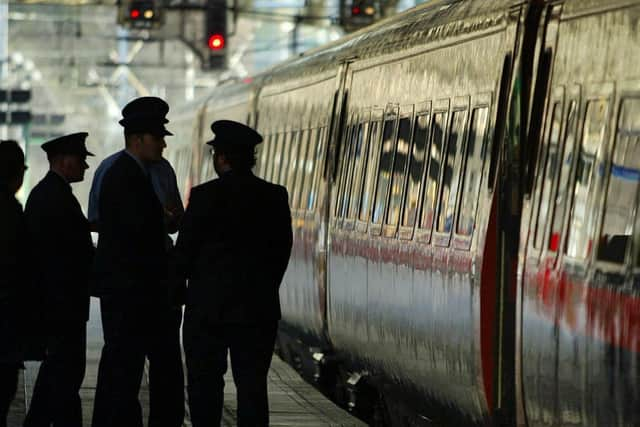This is why Blackpool will be among worst hit in this month’s train strikes
and live on Freeview channel 276
Network Rail has said that half of Britain’s rail lines will be closed during the coming June industrial action.
The rail infrastructure group said no passenger services will serve locations such as Blackpool, Penzance in Cornwall, Bournemouth in Dorset, Swansea in South Wales, Holyhead in North Wales and Chester in Cheshire.
Advertisement
Hide AdAdvertisement
Hide AdOpen lines include the West Coast Main Line from London to Scotland via locations such as Preston, Birmingham and Manchester.


The strike days are Tuesday, Thursday and Saturday next week.
The number of passenger services on those days is expected to be limited to around 4,500 compared with 20,000 normally.
Members of the Rail, Maritime and Transport union at Network Rail and 13 train operators are to strike for three days next week in similar disputes over pay, jobs and pensions.
Advertisement
Hide AdAdvertisement
Hide AdAnd hundreds more rail staff are set to be balloted for strike action and action short of strike. Rail union TSSA has served notice for three more ballots which will hit train operators Northern in Lancashre, C2C and LNER in a dispute over pay, conditions and job security.
Lines will only be open between 7.30am and 6.30pm, meaning services will start later and finish earlier than usual.
Passengers “who must travel” are urged to “plan ahead” to ensure they can complete their journeys within this window, Network Rail said.
Last services from London to Scotland will leave in the early afternoon.
Advertisement
Hide AdAdvertisement
Hide AdSteve Montgomery, who chairs industry body the Rail Delivery Group, said: “These strikes will affect the millions of people who use the train each day, including key workers, students with exams, those who cannot work from home, holidaymakers and those attending important business and leisure events.
“Working with Network Rail, our plan is to keep as many services running as possible, but significant disruption will be inevitable and some parts of the network will not have a service, so passengers should plan their journeys carefully and check their train times.”
Only around 12,000-14,000 services will be able to run on the days following the strikes.
This is because signallers and control staff will not work overnight shifts that begin on the strike dates.
